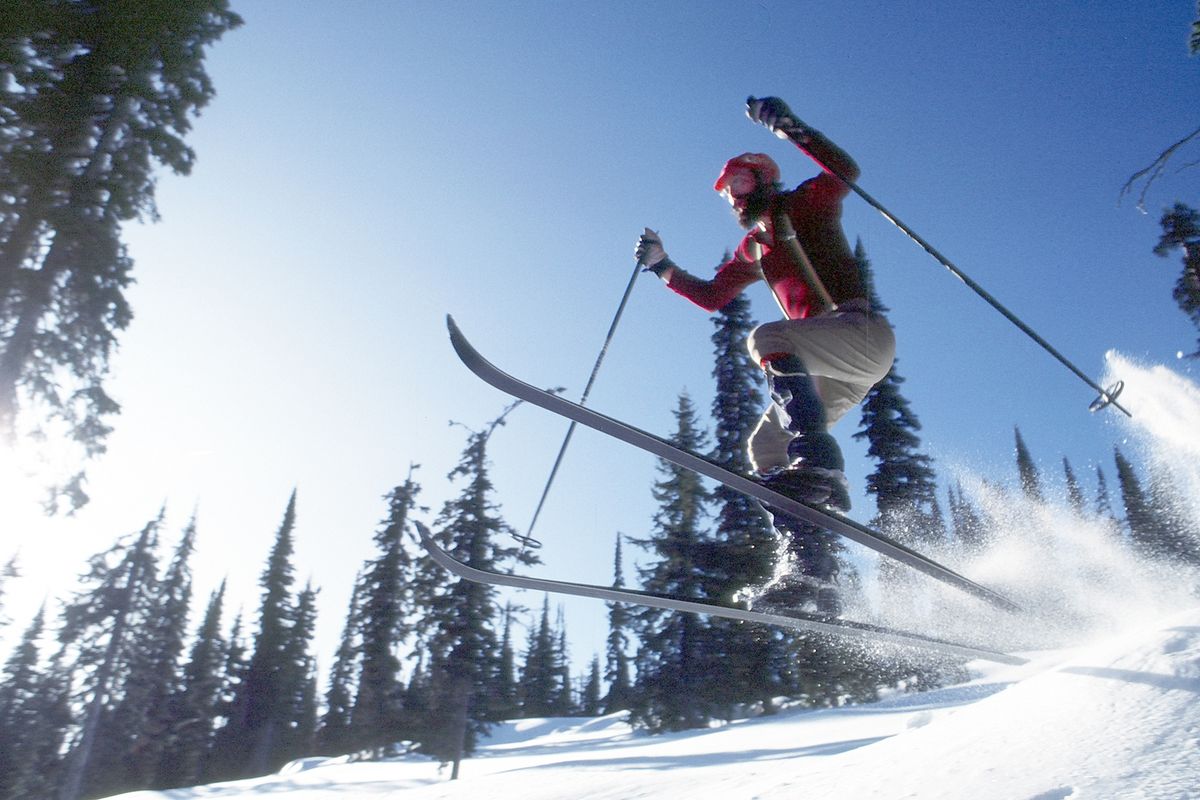This column reflects the opinion of the writer. Learn about the differences between a news story and an opinion column.
Shawn Vestal: On climate, we ignore Chapter 24 at our peril

Hotter, drier, smokier summers. More rain and less snow in the winters. Erratic weather patterns – from droughts to overflowing rivers and coastal surges.
Sunburned apples and softer berries. More heat stroke and Lyme disease. Less skiing and boating, more respiratory problems, suffering fisheries.
Chapter 24 of the Fourth National Climate Assessment is a real bummer. Those of us living in the Pacific Northwest – along with everyone on the planet – ignore it at our peril.
The Fourth National Climate Assessment is an exhaustive, detailed, deeply documented alarm bell – much like the First National Climate Assessment, the Second National Climate Assessment and the Third National Climate Assessment. A product of U.S. Global Change Research Program and relying on work from 13 federal agencies, the assessment lays out a case for action that should be utterly impervious to the increasingly desperate counterarguments of the rejectionists.
It also includes a thorough, detailed, exhaustively cited examination of the effects of a changing climate here in the Northwest. Chapter 24 – it’s not short, but it’s worth your time if you’re sincerely interested in the current state of knowledge about the warming planet and the way it might affect you here at home: (nca2018.globalchange.gov/chapter/24/).
Here are a few of the lowlights from Chapter 24, summarized.
The region has already warmed substantially
The region has warmed nearly 2 degrees Fahrenheit since 1900, a change that is at least partly a result of human activity. This region has warmed more than the average global change of 1.4 degrees. We’ve already seen declines in mountain snowpack with a wide range of effects from increased wildfire risk and a disruption in the usually slow release of water that nourish communities, farms and soil. The effects on the environment, the economy, recreation and overall quality of life are already distinct. The report predicts continuing negative effects – how many will depend on how we respond.
2015 may be a harbinger
The assessment says that 2015 was an “extreme” year that provided “an excellent opportunity to explore projected changes in baseline climate conditions for the Northwest.” Record highs in temperatures, record lows in precipitation and snowpack. Water scarcity contributed to large wildfires and had negative effects on farmers, hydropower, drinking water, air quality, salmon and recreation. Warmer ocean temperatures affected salmon runs and coastal fisheries. Water scarcity plus heat stress hurt agricultural production and livestock health. Record-high river temperatures resulted in more fish kills. An oceanic heat wave nicknamed “the Blob” drove algal blooms along the Pacific coast that damaged commercial, recreation and tribal fisheries.
Trouble on the farm
Those who depend on natural resources for a living are on the front lines. In the Northwest, that means farmers and farm workers. Water scarcity could lead to conflicts over irrigation – with those who hold junior water rights taking a harder hit than holders of senior water rights. “Climate stressors” are bad for livestock health and crop yields, and contribute to more problems with pests, disease and weeds. Tree fruits and other specialty crops already are affected. Warmer springs mean earlier flowering, which can interrupt pollination and affect fruit quality. Heat stress causes “sunburn scald” on apples and results in softer berry crops, which are harder to get to market intact.
Coastal tribes seek higher ground
Tribes and indigenous peoples are “experiencing the first, and some of the worst, effects” already. The Quinault Indian Nation on the Olympic Peninsula has seen repeated high-water disasters – the flooding of villages, the washing-away of roads and bridges, the compromising of wastewater treatment systems. The tribe is now planning to relocate to higher ground.
They’re not alone. “Other Washington tribes have also relocated or begun relocation efforts, including the Hoh Tribe, Makah Tribe, and Shoalwater Bay Tribe.”
Less opportunity to play
A changing climate will affect outdoor recreation in lots of ways. Warmer weather will likely bring more people to state and national parks – but boating and water recreation will suffer with lower stream flows and reservoir levels. Ski seasons have already been “dramatically impacted” by reduced snowfall, just as summer recreation opportunities suffer during heavy fire seasons.
Health emergencies
You might not think of climate change as an emergency room issue. Chapter 24 begs to differ. In the Western U.S. from 2004-09, with longer, larger wildfires, there was an increase of 7.2 percent in hospital admissions for respiratory problems among those 65 and older. Living in Boise in seven of the past 10 years has meant a week or more of “unhealthy” air quality for kids and the elderly. Heat-related hospital admissions are up in King County over a 20-year period.
Changing climate been associated with increases in tick habitat and Lyme disease and more cases of West Nile virus. Scientists have tracked correlations between extreme heat and salmonella, E. coli and shigellosis. Cryptococcal infections, once limited to the tropics, are showing up in the Northwest, as the yeast that causes them has established itself in the soil.
I wrote that the report is a bummer, and that’s true. But it also includes a wide range of actions being undertaken to fight the effects of climate change across the Northwest – by farmers, tribes, governments, universities, scientists, communities. There’s hope in there, too.
But hope only exists if enough people pay enough attention.
If we continue to have political debates grounded in glib nonsense peddled by people acting in bad faith – from snowballs on the Senate floor, to uninformed rhetorical questions about ice melting in glasses, to conspiracies about money-grubbing university scientists – we’ll never get there at all. The annual climate assessments will just mark our decline.
Chapter 24 calls us to action. But we’ve ignored plenty of those calls already.
